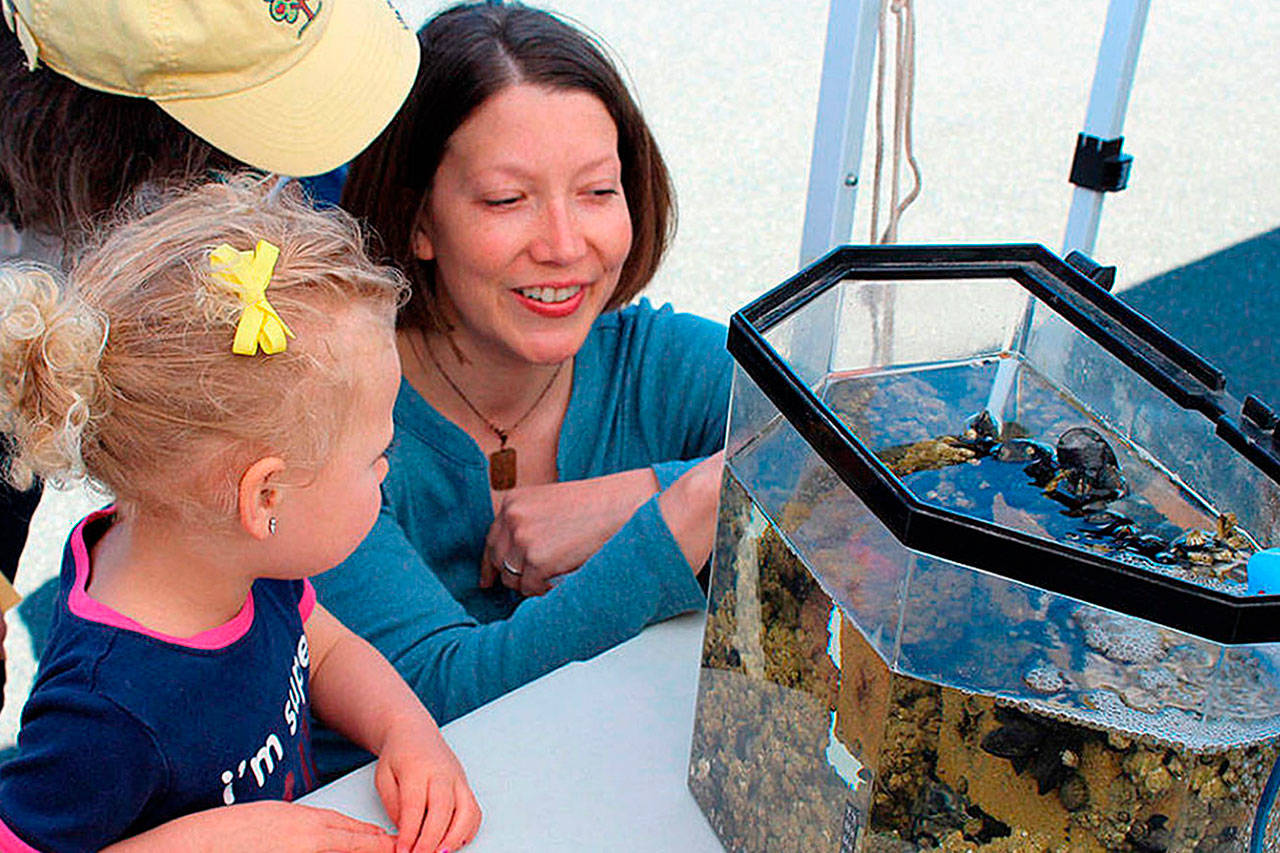This Saturday, Sound Water Stewards presents its “one-day university for everyone,” an annual offering of dozens of classes about the Salish Sea from “Fascinating Fungi” to “Ocean Acidification in the Pacific Northwest.”
In its 24th year, the $50 conference at South Whidbey High School quickly reached capacity, shutting down registration a week early.
But environmental education continues year-round for Sound Water Stewards of Island County.
It teaches kids about beach critters, answers visitors’ questions about the way of whales and leads guided walks through forests, fauna and tidal pools.
But first its teachers must be taught.
And that’s no one-day affair.
Training adding up to 100 hours is given by various experts during 14 all-day classes. A $100 registration fee covers materials and expenses, and hands-on field trips are part of the curriculum.
This year, Sound Stewards classes meet every Thursday from March 15 to April 26 and then continue Sept. 13 to Oct. 25. Classes take place on Whidbey and Camano Islands.
More than 600 people have been trained since the organization started in 1989 as the Island County Beach Watchers program of Washington State University Extension.
Last year, 159 trained volunteers conducted several citizen science projects and surveys and helped out with many state park educational programs, said Kelly Zupich, Sound Water Stewards’ Whidbey coordinator.
“We have an amazing and active group of volunteers who logged over 20,000 hours in 2017 alone,” she said.
Meetings to explain the group’s extensive training program are scheduled 11 a.m. to noon Feb. 2 at Coupeville Library and 1 to 2 p.m. Feb. 21 at Freeland Library.
The nonprofit volunteer organization that’s been a guardian of bluffs, beaches, wetlands and marine life for nearly 30 years has become a vital resource for state and county programs and projects.
“I can always rely on Sound Water Stewards to be engaged, knowledgeable and dedicated to protection of our marine environment,” said Anna Toledo, marine resources committee coordinator with Island County’s Department of Natural Resources.
Monitoring forage fish spawning, conducting boat-based bull kelp surveys and keeping an eye out for the invasive European Green Crab are just a sampling of on-going research.
Now that sounds like an education.
For more information: www. soundwaterstewards.org


